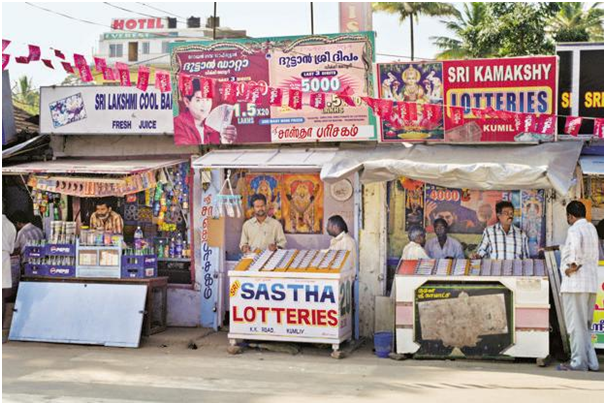Privately run lotteries in India under 28% GST tax slab

GST is the goods and services tax that has been announced by Indian government lately and imposed even on India’s private run lotteries. This newly introduced tax rates introduced by the GST Council, also now bring luxury services under higher taxation including five-star hotels and cinemas.
The union Finance Minister Arun Jaitely announced the tax rate during the 17th GST Council meeting where the Council reached a decision to charge a 12% GST tax on state-run lotteriesthat don’t have private marketing and distribution, while private lotteries will be charged with the highest 28% tax rate. The GST lottery tax was the focus of many debates by the Council, which subsequently lead them to rule on the amended tax rate. The new GST rate will be applied to the value of the tickets and not the government’s or distributor’s retained margins. The council fixed tax rate of 18 per cent for hotel rooms between Rs 2,000 and Rs 7,500. Rooms with tariff above Rs 7,500 will attract 28 per cent tax.
According to reports, it was the Kerala state government, who also runs a popular state lottery in India, which asked for higher taxations on private lotteries, while other states supported lower rates. The Kerala local government also launched an investigation last year into the single-digit lottery that competed with the state’s own operations in the North, after having filed over 544 court cases since 2011. The government reported at the time that an organized group was behind the private lottery operations and sought to “curb” its activities.
The new taxation rate will put private lotteries in the same tax slab as other “luxurious” activities from the entertainment industry, including renting hotel rooms at tariffs over Rs 7,500 ($116), entries to land-based casinos, and even theme park services.
Among the states that have allowed private distributors to sell and market their lottery schemes include Maharashtra, Goa, Sikkim, Mizoram, Nagaland, Punjab and West Bengal.
According to industry estimates, lotteries are a Rs 50,000-crore business. Rahul Tangri the president of Playwin said that the taxation has to be logical, and it would be very unfair if the government levies tax on the ‘face value’ of the lottery. The ‘face value’ of a lottery pot comprises three parts – the prize money, government taxes and operators’ margin.
So GST should only be levied on the operators’ margin. The prize money part comes under direct tax (income tax paid by the winner) according to Tangri. This could impact the revenue of the state governments cited above, as a significant part of the money paid for a ticket goes to them, and even force some operators to shut shop. It may also create some academic and legal issues as lotteries are tough to define.
Meanwhile, online skill games, which do not fall under gambling, fall under the “all other services not specified elsewhere” category and will be subjected to an 18% GST. This rate is lower than gambling activities, but still slightly higher than the 15 percent service tax currently paid by online rummy, poker and fantasy sports operators in the country.